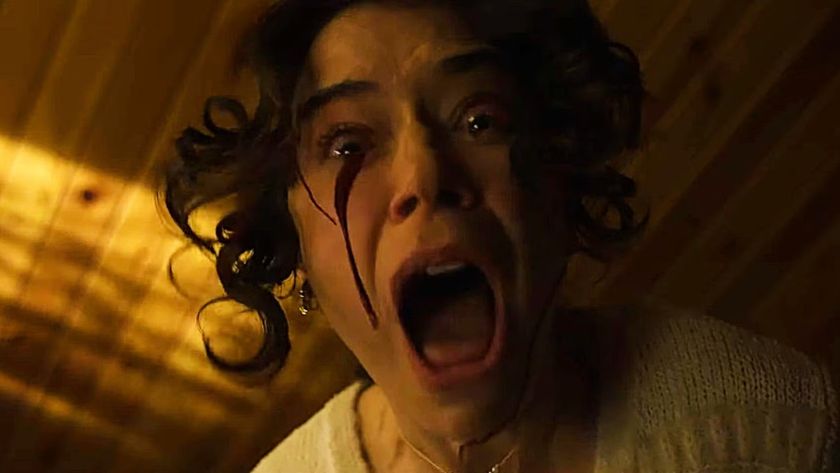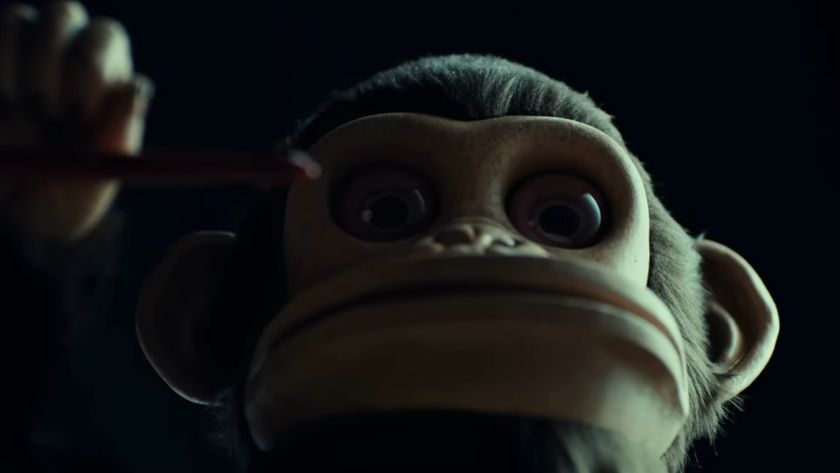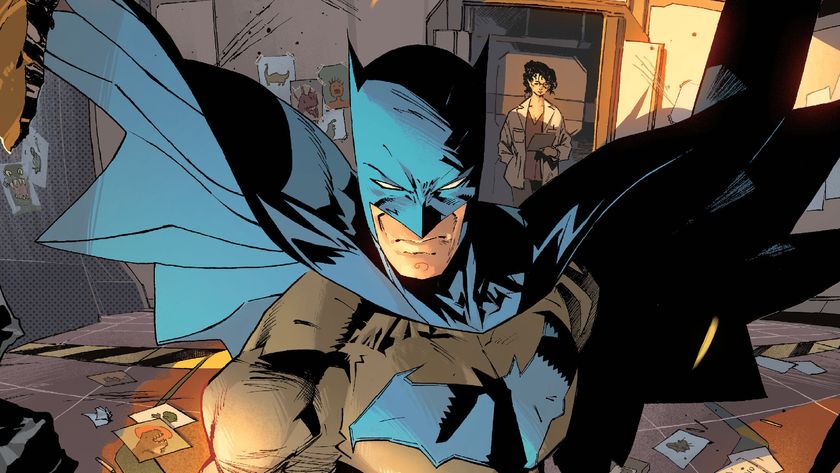How to pretend you've seen the 30 best movies ever made
One Flew Over the Cuckoo's Nest (1975)

Randle McMurphy (Jack Nicholson) hopes to squeak through the rest of his prison sentence with minimal effort, so he fakes a mental illness and ends up in a mental institution overseen by the strict Nurse Ratched (Louise Fletcher). McMurphy's free-wheeling and rebellious attitude goes over well with the other patients as he sneaks them out on an unsanctioned fishing trip, but Ratched sees McMurphy as a threat to her own control and order. McMurphy learns that his stay might become permanent, so he tries to convince Chief, his large Native American roommate (Will Sampson) to throw a hydrotherapy cart through the window so they can escape; Chief pretends to play deaf and mute until the two go through electroshock therapy together. McMurphy throws a surprise Christmas party for the other patients, sneaking a couple of women into the hospital, using the ruckus as cover to escape. He and Chief are about to leave, but fellow roommate Billy (Brad Dourif) won't accompany them, so McMurphy convinces one of the women to have sex with him. Nurse Ratched discovers the two together, Billy's stutter gone until Ratched threatens to tell Billy's mother what he did. Billy locks himself the doctor's office and commits suicide. This sends McMurphy over the deep end, who attempts to strangle Ratched until he's knocked out by an orderly. McMurphy returns to his room with lobotomy scars, and his roommate Chief suffocates him with a pillow, picks up the hydrotherapy cart, chucks it at the window, and escapes.
Key things to mention: Composer Jack Nitzsche use a bowed saw and wine glasses to craft an eerie, off-kilter score. This is Danny DeVito's first film, reprising his role from the stage play as dimwitted patient Martini. DeVito would eventually parody this film in an episode of It's Always Sunny in Philadelphia called "Sweet Dee Has a Heart Attack" - right on down to the nurse's hair and the film's ending, featuring Will Sampson's son. This is also Christopher Lloyd's (aka Doc Brown from Back to the Future) first film.
Memorable quote: "Which one of you nuts has got any guts?"
David Roberts
Goodfellas (1990)
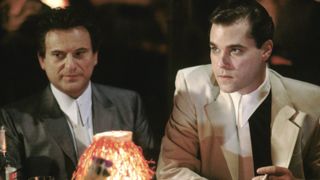
Besides The Godfather trilogy, Martin Scorsese's Goodfellas is the greatest portrayal of the Italian gangster lifestyle put to film, full of wise guys, organized crime, and plenty of good ol'-fashioned whackings. Based on a true story, Goodfellas follows Henry Hill (Ray Liotta) as he grows up from a young kid who idolizes mobsters into a mafioso who might be in over his head. Along with his close associates James Conway (Robert DeNiro) and the depraved Tommy DeVito (Joe Pesci), Hill tries to move up in the criminal world while dealing with drugs, murder, and the chaos of having a family. Eventually Henry Hill is forced out of gangster life, having given testimony against his former associates, ending the movie on a bleak note as he says “I’m an average nobody. I get to live my life like a schnook.”
Key things to mention: You just can't look away whenever Joe Pesci is on screen - he absolutely steals every scene with how aggressively erratic and abruptly violent he can be. Here's this relatively small guy with a high-pitched voice who you probably know as a bumbling burglar from Home Alone - but in Goodfellas, you don't know whether to laugh or tense up every time he speaks, because he can swing from hilarious wisecracking to dead-serious intimidation or heartless brutality in an instant. I almost feel like he's going to come find me and kill me just for writing that description.
Memorable quote: "I'm funny how? I mean funny like I'm a clown, I amuse you? I make you laugh, I'm here to fuckin' amuse you?"
Lucas Sullivan
Seven Samurai (1954)
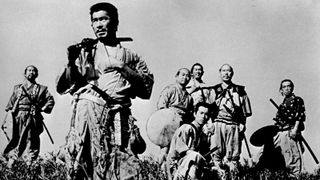
Akira Kurosawa’s most famous movie follows the exploits of seven ronin (samurai without a Lord), who unite to protect a poor village from bandit attacks. The band are recruited thanks to a mixture of charisma and respect commanded by the main hero, Kikuchiyo (Toshiro Mifune), and they fight and die for the villagers for almost no reward. In fact, the villagers are often portrayed as devious by Kurosawa, tricking and cheating the samurai to get their own ends. After a climactic battle in the rain, as the samurai repulse the raiders, the poignant end of the movie sees the villagers returning to their lives, turning a cold shoulder to the heroes who fought and died to grant them freedom.
Sign up for the Total Film Newsletter
Bringing all the latest movie news, features, and reviews to your inbox
Key things to mention: The epic final battle in the rain; the different characteristics of the samurai somehow gelling them into a roguish group of heroes; the various class tensions on display in the movie; the fact this film inspired The Magnificent Seven, which is essentially a Western remake.
Memorable quote: “This is the nature of war: By protecting others, you save yourselves. If you only think of yourself, you'll only destroy yourself.”
Andy Hartup
City of God (2002)
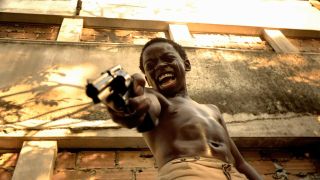
Set in Rio de Janeiro between the 1960’s and 1980’s, City of God follows the life of Rocket (Alejandre Rodrigues), a boy living in the titular favela (low-income Brazilian housing project) who navigates a world ruled by drug wars, the film jumping back and forth between points in his life and the lives of people around him. His older brother, Goose (Renato de Souza), along with Goose's friends Shaggy (Jonathan Haagensen) and Clipper (Jefechander Suplino), run a gang known as the Tender Trio, committing petty crimes and distributing the wealth to the favela's inhabitants. A young kid named Li'l Dice (Douglas Silva) convinces the trio to hold up a hotel and, unsatisfied by the lack of bloodshed, takes it upon himself to gleefully murder everyone inside. The trio disbands, Li'l Dice renames himself Li'l Zé (played as an adult by Leandro Firmina de Hora), and using a gang of children known as "The Runts" eliminates all of the competition save for one dealer named Carrot (Matheus Nachtergaele). Li'l Zé, drunk with power, attacks a peaceful man named Knockout Ned (Seu Jorge) and murders several members of his family; Ned partners with Carrot, and the two sides are enveloped in all-out war. Ned is killed by a boy seeking vengeance, and the police capture Carrot and Zé, keeping Carrot for failing to pay off the police and letting Zé go, who is subsequently killed by Runts looking to take over the business for themselves. Rocket photographs the scene, and has a choice: expose the police's corruption, or use the photo of Zé's body to get an internship with the paper. He chooses the latter.
Key things to mention: One of the reasons City of God is so powerful is that, other than the actor who plays Carrot, no-one in the film has any professional acting experience. Many of the actors were from favelas in Brazil, several of them from the actual city portrayed in the film. Also, Li'l Zé is a bastard; one scene shows him harassing a bunch of Runts, asking them whether they want him to shoot their hands or feet. They hold their hands out, and he shoots their toes, then calls a young boy over named Steak-and-Fries and asks him to kill one of them to see if he has the guts.
Memorable quote: "Where do you want to take the shot? In the hand or in the foot?"
David Roberts
Se7en (1995)
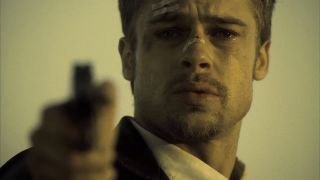
Brad Pitt’s police detective investigates a series grotesque murders and apparent suicides, and along the way realises that each is themed around a different one of the seven deadly sins. A gluttonous man is forced to eat until his stomach bursts. A slothful man is tied to a bed for a year. That sort of thing. With five murders discovered, the killer (identified only as John Doe) surrenders, but negotiates Pitt and his close-to-retirement partner (played by Morgan Freeman) to drive into the desert with him. There, a delivery fan arrives and deposits a box. Inside the box is Pitt’s wife’s (Gwyneth Paltrow) head, Doe having killed her out of envy at Pitt’s character’s happy life. He goads Pitt into (wrathfully) killing him, this completing the seven punishments.
Key things to mention: The atmospheric opening-title sequence was created because the scripted, more narratively traditional opening required too much expensive location work, but was ultimately designed to give Doe a presence throughout the movie despite not appear until near the end. Also, it was Kevin Spacey’s idea to keep his involvement as Doe a secret, so as to keep the killer a mystery.
Memorable quote: “When a person is insane, as you clearly are, do you know that you're insane? Maybe you're just sitting around, reading Guns and Ammo, masturbating in your own faeces… Do you just stop and go, ‘Wow! It is amazing how fucking crazy I really am!’?”
David Houghton
The Silence of the Lambs (1991)
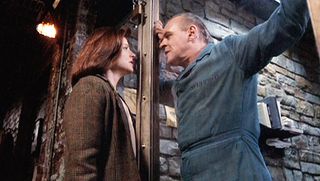
FBI trainee Clarice Starling (Jodie Foster) is tasked with interviewing convicted, cannibalistic, but deeply intellectual serial killer Hannibal Lecter (Anthony Hopkins) in the hope that he might be able to help track a new killer (Ted Levine), nicknamed Buffalo Bill as a result of his habit of skinning his victims. Many mind-games ensue between the two, Lecter repeatedly trying to get into Clarice’s head by demanding she discuss childhood trauma in exchange for clues. The two become closer (in a messed up, adversarial kind of way), and eventually Clarice works out that Bill is a tailor trying to make a female skin-suit to deal with body dysmorphia resulting from trauma of his own. An FBI slip-up leads her to Bill’s house, while the other Feds go to his old address, as Hannibal escapes incarceration by gutting one guard and turning him into a ‘blood angel’, and wearing the face of another. After a bit of cat-and-mouse in the dark, Clarice shoots Bill and rescues his latest victim. Hannibal calls later and promises not to kill her.
Key things to mention: The film in its current form almost didn’t happen. Gene Hackman originally paid for half the rights, in exchange for directing, and starring as Lecter. He eventually pulled out, which brought in Jonathan Demme and Anthony Hopkins, respectively.
Memorable quote: “I do wish we could chat longer, but I’m having an old friend for dinner.”
David Houghton
It's a Wonderful Life (1946)
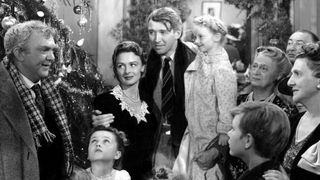
This black and white movie is a Christmas classic and follows the story of George Bailey (James Stewart) who dreams of travelling the world, but decides to stay in his small town when his father dies unexpectedly and his family’s building society threatens to close. Over the years he struggles to keep it open and support his family during the war, the Great Depression, and many other challenges, until a mistake is made and it looks like he’ll go to prison for fraud. Believing everyone will be better off without him, he decides to commit suicide, at which point God sends the angel Clarence (Henry Travers) to save him. Clarence shows him what life would be like if he’d never been born and he discovers his brother would have died, his wife would be alone, and many of his friends and family in the community would have suffered terribly without him. He realises that despite the sacrifices he’s made, It’s a Wonderful Life indeed and he runs home to his family before having the day saved by the generosity of others. A truly heart-warming story.
Key things to mention: George saves his little brother Harry from drowning when he’s just 12-years-old, and as a result loses hearing in one of his ears. When he’s courting his future wife, Mary, George tells her he’ll throw a lasso around the moon and pull it down for her. The baddie of the movie is Mr. Potter who’s the richest man in town and owns the bank which would be the only place people could get a loan without Bailey Building and Loan, which George runs. Mr Potter is basically a Scrooge-like figure who constantly tries to shut George’s company down.
Memorable quote: “Every time you hear a bell ring, it means that some angel's just got his wings.”
Lauren O’Callaghan
Léon (1994)
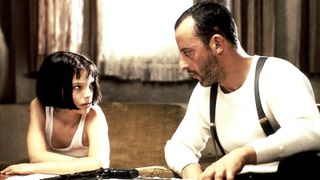
The main thing with Léon is its relationship between its two leads, Jean Reno’s Léon and Natalie Portman’s Mathilda. He’s a lethal loaner hitman, she’s a child, recently orphaned after her father ran foul of Gary Oldman’s psychotic bad cop. The real strength of the movie though is the relationship between Reno and Portman - him playing the curmudgeonly grump murderer learning to feel again, and her a girl on the cusp of womanhood developing feelings for her killy rescuer. Oldman’s terrifying performance is also worthy of note, especially for creating the ‘EVERYONE!’ meme when he calls for backup to deal with Léon’s revenge. However, it’s the end most remember: after Léon’s already heartbreaking death, the film closes on Mathilda potting the plant he’s cared for throughout the movie, at the school she now attends, saying “I think we'll be okay here, Léon.” Not. A. Dry. Eye.
Key things to mention: Léon is a reworking of a character Jean Reno previously played in La Femme Nikita, called Victor. In that film he was a ‘cleaner’ hired to dispose of a body, and director Luc Besson has stated in interviews that, "now maybe Jean is playing the American cousin of Victor. This time he's more human." Worth noting as well that this was Natalie Portman’s debut film performance and she was only 11 when she auditioned for the part.
Memorable quote: “EVERYONE!”
Leon Hurley
Spirited Away (2001)
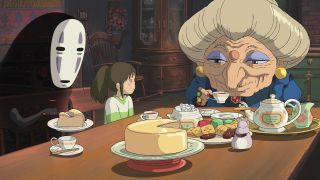
Written and directed by the legendary Hayao Miyazaki for Studio Ghibli, Spirited Away was so successful on release that it overtook Titanic as the top grossing movie in Japan’s history. Spirited Away is the story of Chihiro who stumbles upon a bathhouse in the spirit world. To save her parents (who have been turned into pigs), she ends up working in the bath house, saving a river spirit and overthrowing an evil witch who has an absolutely enormous obese baby. At the end Chihiro has to choose her parents-turned-pigs from a group of the farmuard animals, and correctly identifies that none of them are her mother or father. Yep, it’s just as wonderfully surreal as it sounds with beautiful animation and that wonderful sinking-into-a-hot-bath Ghibli atmosphere that you can only find in Miyazaki’s work. In fact, stop acting like you’ve seen this film and actually watch it. Stuff the rest of the list. Watch this.
Key things to mention: How genuinely scary it is when Chihiro’s parents turn into pigs, how you should definitely watch the original even though the Disney dubbed version is fine, the wonderful scene on the train with No Face, and how scary it is when the spirit vomits everything he’s eaten.
Memorable quote: “There must be some mistake! None of these pigs are my parents.”
Louise Blain
Saving Private Ryan (1998)
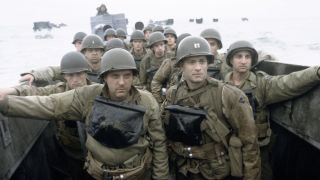
Director Steven Spielberg’s other Oscar-winning WWII movie (in addition to Schindler’s List), starring Tom Hanks and based in part on actual people. Opening on a veteran paying his respects at a grave, it flashes back to the Normandy landing, which is the first half hour of the movie and one of the most harrowing depictions of war ever committed to film. Captain Miller (Tom Hanks) and his men have to track down Private Ryan (Matt Damon), who is being sent home after all of his siblings were killed in action. Saving Private Ryan is a dirty, bleak exploration of the common soldier in warfare, as eight men risk their lives to find a man and give him the one thing they all want but won’t get: an escape from the mud and bloodshed. Finding him defending a bridge, Ryan refuses to leave “the only brothers [he] has left”. Miller takes command, with most of the band of soldiers being killed in the process. A German prisoner they previously saved from being executed turns up again as he’s rejoined with the Germans, shooting and mortally wounding Miller. One of the surviving allied soldiers hunts down him and his group, shooting him in revenge but letting the others flee. Ryan is beside Miller as he dies, and is revealed to be the elderly soldier visiting the grave at the beginning of the movie.
Key things to mention: The trick to convincing people you’ve seen the movie is name dropping the plethora of stars who are in it at, including Vin Diesel before he was either fast or furious. Giovanni Ribisi, Nathan Fillion, Paul Giamatti, and even Ted Danson make appearances alongside Tom Hanks and of course, Private Ryan himself, Matt Damon. For extra credibility, mention how Spielberg was smart to convert the camera lenses to mimic the washed-out look of actual newsreel footage from WWII. Another fun fact: the D-Day sequence cost $12 million all by itself, but it’s also the arguably the most memorable part of the film.
Memorable quote: “This Ryan better be worth it. He’d better go home and cure some disease or invent a longer-lasting lightbulb or something.”
Susan Arendt
12DOVE was first founded in 1999, and since then has been dedicated to delivering video game-related news, reviews, previews, features, and more. Since late 2014, the website has been the online home of Total Film, SFX, Edge, and PLAY magazines, with comics site Newsarama joining the fold in 2020. Our aim as the global GamesRadar Staff team is to take you closer to the games, movies, TV shows, and comics that you love. We want to upgrade your downtime, and help you make the most of your time, money, and skills. We always aim to entertain, inform, and inspire through our mix of content - which includes news, reviews, features, tips, buying guides, and videos.
Most Popular






